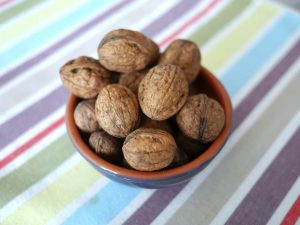Guide To Eating Healthy Fats
 Fat tends to get a bad rap in the dieting world.
Fat tends to get a bad rap in the dieting world.
The truth is, however, that eating fat is necessary and healthy for the body – and a lack of dietary fat can cause health problems, like poor vitamin consumption, depression, heart disease, nutrient imbalances and overeating.
The key to fat consumption is making sure you eat healthy fats while avoiding or minimizing harmful dietary fats.
“Bad” fats
The two main types of “bad” dietary fats are saturated fat and trans fat. Saturated fat comes mainly from animal sources. It can raise cholesterol levels while also increasing risk for heart disease, inflammation and diabetes.
Trans fat is a type of fat that is common in baked goods like crackers, cookies and cakes. It it made by adding hydrogen to vegetable oil, which makes the oil less likely to go bad – great for preserving the shelf life of products but not so great for your health. Trans fats not only increase your “bad” (LDL) cholesterol levels, but they lower your “good” (HDL) cholesterol levels, too.
Healthy fats
Healthy fats are found in many common foods you probably eat in your daily life, like avocados, nuts, seeds and olive oil. There are two types of “healthy” fats:
Monounsaturated fats. This type of fat is found in vegetable oils, like olive oil, canola oil, sunflower oil, sesame oil and peanut oil. You can also get monounsaturated fats from peanut butter, avocados and many nuts and seeds. This type of fat can help reduce LDL levels while lowering your risk of heart disease and stroke. They also give your cells nutrients, antioxidants and vitamin E.
Polyunsaturated fats. Polyunsaturated fats, like monounsaturated fats, can have a beneficial effect on health when used in moderation and to replace saturated fats. They include essential fatty acids like omega-6 and omega-3 – compounds that your body needs but can’t produce on its own; they must be assimilated through diet. These types of fats are critical for brain function and development. Foods like salmon, mackerel, trout, vegetable oils, walnuts and sunflower seeds are rich in polyunsaturated fats.
Moderation
While nuts, seeds and avocados are healthy foods, all fats should be consumed in moderation. The American Heart Association recommends that the fats you consume should total between 25 and 35 percent of the calories you eat each day – and the majority of these should be in the form of monounsaturated or polyunsaturated fats. Additionally, fat-soluble vitamins, like vitamins A, E, D and K, should be taken with food to help the body assimilate nutrients most effectively.
Source: American Heart Association
 Eating Disorder Self Test. Take the EAT-26 self test to see if you might have eating disorder symptoms that might require professional evaluation. All answers are confidential.
Eating Disorder Self Test. Take the EAT-26 self test to see if you might have eating disorder symptoms that might require professional evaluation. All answers are confidential.